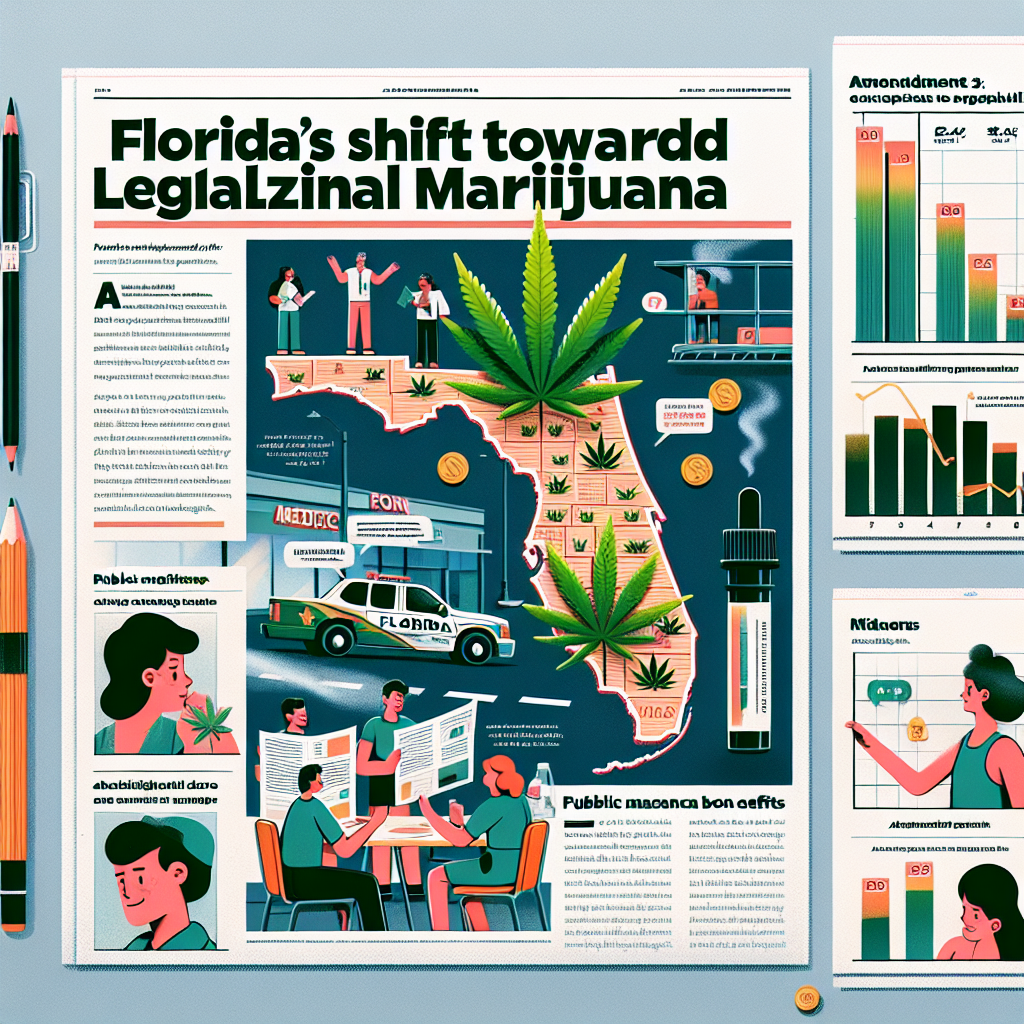
Amendment 3: Florida’s Shift Towards Legalizing Marijuana
Floridians Lean Towards Legalizing Recreational Marijuana: A Critical Analysis of Amendment 3
As Florida approaches a pivotal moment in its legislative history with the potential legalization of recreational marijuana, the political, social, and economic stakes couldn’t be higher. With Amendment 3 on the ballot, Floridians have a chance to join the growing list of states embracing legal cannabis both for medical and recreational use. This analysis delves into the multifaceted implications of such a shift, backed by voices from both sides of the debate.
Widespread Public Support and Political Controversy
A recent poll by the University of North Florida’s Public Opinion Research Lab (PORL) shows a surprising 66% support for Amendment 3 among Florida voters, surpassing the required 60% threshold needed for passage (Forbes). The initiative promises legal possession and purchase of marijuana, aligning the state with others that have moved towards a more liberal approach to cannabis.
Criminal Justice and Economic Opportunities
Economically, the legalization is anticipated to spur significant economic benefits from tax revenue, which could support education, healthcare, and infrastructure projects. Simultaneously, it would alleviate the burden on the criminal justice system, reducing arrests for non-violent drug offenses and potentially addressing racial discrepancies in drug-related incarcerations.
Business Dynamics and Market Impact
Florida’s largest medical marijuana provider, Trulieve, is heavily invested in the amendment’s success, having contributed substantial financial resources to the campaign (Benzinga). If passed, current medical marijuana retailers could extend their services to recreational users, potentially multiplying their customer base overnight.
Health Concerns and Public Safety
Critics, including Governor Ron DeSantis, argue that the amendment could lead to public safety issues, citing the potential proliferation of marijuana use in public spaces and its societal impacts. On the other side, advocates like Trulieve CEO Kim Rivers argue legalization is a vital measure to regulate and safely control the distribution of cannabis, ensuring products are out of reach of minors (Islander News).
Conclusion
As November draws near, the debate over Amendment 3 is not just about legalizing a plant but about reshaping Florida’s social, economic, and criminal justice landscapes. With both high approval numbers and powerful opposition, the outcome will be a decisive moment for the state.

